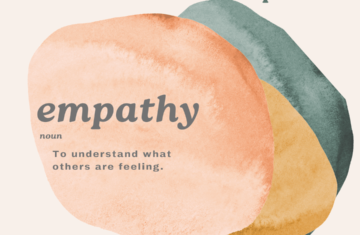Social Impact: What does it mean?
One of the benefits of social media is how quickly information—both the good and the bad— can be passed about businesses. People care more than ever about whether their money is going. Given the choice, people often choose to make sure their money goes toward something positive. People want to know their money is going towards the good of a community or those abroad instead of just towards a nice pair of new sneakers.
What is Social Impact?
“Social impact” is how companies define how they’re benefitting or helping a specific community. It may be an activity, initiative, or policy that intentionally has a positive effect on the direct community surrounding a specific business or company, or it may be somehow directed towards a community half the world away. It’s more than just doing some kind of social “good.” It’s about making real and definitive change.
How does it impact?
Companies often incorporate social impact ideals into some part of their operation. It could be that they donate a certain amount of their profit to a specific initiative. It could be that they seek to drastically reduce their carbon footprint or that they provide free to low-cost education to their local community. It could also be that the company offers incentives to its employees who volunteer or contribute money to a specific charity.
These initiatives have to be authentic, an essential part in the business, and supported by all of the employees. People are quick to “cancel” businesses that just seem to be doing it for tax cuts or because they’re hoping to draw more sales. These social good initiatives must be done because it’s right, instead of because it can mean generating more profits.
How can you make a social impact?
If you care about social impact, it can start with what you do as a consumer. If you care about the work a specific company is doing, purchase their products and talk to others about them. If a company you know of is having a negative social impact, don’t give them your support. You could also choose to volunteer in your free time or offer some of your services at low or no costs to certain groups or individuals. You may also want to work to reduce your carbon footprint by riding your bike or ride-sharing to work instead of driving by yourself, composting to cut down on waste, or setting up monthly donations to charities you care about.
You may also want to address and facilitate the social impact at your company. Maybe the initiatives are there, but the company culture as a whole isn’t supportive of it. Maybe a program hasn’t been started yet, or there’s been pushback because there isn’t a lot of money in the budget for doing something like an incentive program for employees. Think of other options and pitch those ideas. Social impact is never a bad thing. If, for example, your company can’t back something financially, maybe you could organize a company-wide volunteer group or donation collection. In that way, employees at your company or business would still be working together to increase their social impact.
If you’re currently unemployed or looking to change jobs, you may want to consider choosing to work for a company that has a social impact you can be proud of. Hiring an executive coach can help you in this process as well as they may have some insight in how you can target your resume specifically to highlight your passion for social good as well as for companies that align with your personal values.
When you start applying to jobs, look up companies in your field in your area and see whether they have their social impact strategies already outlined on their websites. If they don’t, make it a question you ask after the interview. Questions like, “What community work do your employees do?” or “Does the company have any initiatives that directly benefit a certain community?’ If you know you care about a specific issue, like protecting the environment, ask them about whether they use recycled products, if they have recycling, etc. You can work for a company that aligns with your personal values. You just may need to do some research and ask thoughtful questions before you find the one for you.





